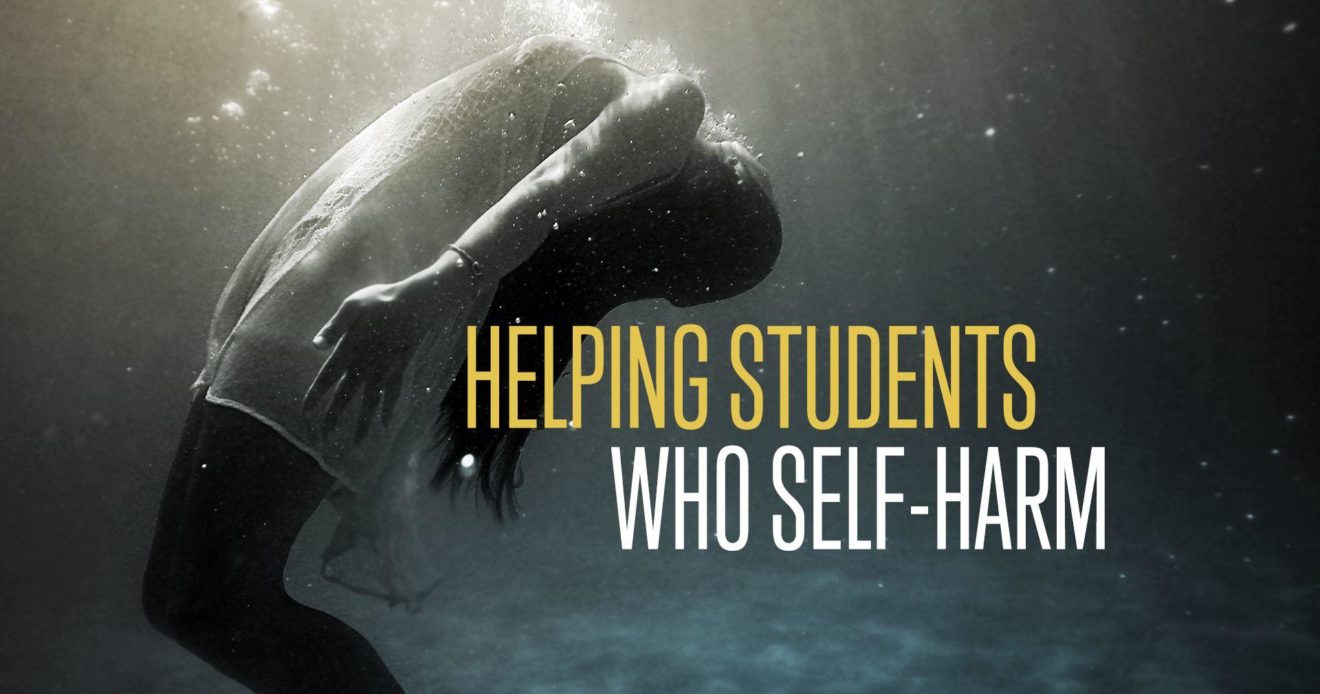
Helping Students Who Self-Harm
If you’ve been around youth ministry long enough, you’ll know that cutting and self-harm among teenagers is certainly not a new thing. It’s been an issue for decades (at least), and we as the church have both over- and under-reacted to students who intentionally hurt themselves.
But the practice hasn’t gone away, and you or I may be faced with a choice about how to help a student caught in self-injury. In fact, the hard truth is that sometimes youth leaders are the only ones available to stand with students walking through a habit that may be baffling even to them.
Sharon Dickens wrote a helpful post called The First Cut is the Deepest: Self-Harmers in the Church on a Scottish blog for Christian churches.
Dickens avoids both the suggestion that we should just ignore cases of self-harm, because those who do so are only looking for attention—or that we should call 911 and get the self-injured into restraints as soon as possible. Instead, she insists that the answer for those who hurt themselves is the gospel.
Rarely in Christian circles have I found the subject discussed with any depth. I don’t know why that is. But I do know one thing for sure. There are Christian who self-harm and this can bring with it an added layer of the guilt and shame that a self-harmer already experiences.
The good news is that there is hope and freedom from the cycle of self-harm in Jesus Christ. However, too often there is a disconnect between the biblical truth we profess to know and the reality of how we live.
Of course, if you become aware that a student is harming themselves, you’ll need to talk to his or her parents—and parents may choose to do anything from nothing at all to seeking professional counseling. But there is practical, biblical help we can offer to both the student and the parents, as well.
Dickens suggests helping Christians who are self-harming to replace lies they’re believing (e.g., “Hurting myself is the only way I can stop the feelings.”) with biblical truth (e.g., “Share the pain with the one who loves us. Turn to him.”)
She also offers 7 practical ideas for us to offer to Christian self-harmers, including:
Be Honest! Self-harm likes privacy and secrecy. It’s all too easy when you’re in your secret world to withdraw and hide your behaviour. Be honest with God and a good mature accountability partner. Don’t give Satan a foothold.
In the end, the fact that these students see that we care for them, that we don’t reject them, that we reflect the grace of God to them in Christ, will go a long way toward helping them through this scary season in their lives. But check out Dickens’ post for very specific and hopeful direction we can offer, along with our love, prayers, encouragement, and intervention (if necessary).
Comments
Get the AwanaYM Update
Receive youth ministry resources in your inbox. Subscribe today!